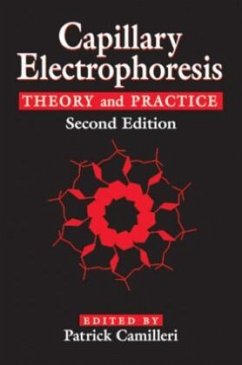The importance of capillary electrophoresis (CE) as an analytical tool has increased dramatically over the last ten years. It has changed from being an exploratory technique, mainly of academic interest, to one that is applied to solve "real" analytical problems. CE is easily adapted to its various modes of operation, often requiring little more than a change of the buffer solution, and is quickly becoming the preferred technique when analyzing minute amounts of available material.
Featuring new chapters on CE analysis of inorganic ions and carbohydrates, the new edition of Capillary Electrophoresis not only presents this method as an academic tool, but also provides applications for solving "real-world" analytical problems. This updated Second Edition reflects the increasing use of CE over the last 10 years, how it is being applied, and the basic theoretical aspects of the separation and detection methodology of CE. Capillary Electrophoresis: Theory and Practice will appeal to students and professionals of analytical chemistry, physical chemistry, biochemistry, and biotechnology and includes suitable experiments designed to be attempted by university or college students, or anyone else wishing to familiarize themselves with CE.
Featuring new chapters on CE analysis of inorganic ions and carbohydrates, the new edition of Capillary Electrophoresis not only presents this method as an academic tool, but also provides applications for solving "real-world" analytical problems. This updated Second Edition reflects the increasing use of CE over the last 10 years, how it is being applied, and the basic theoretical aspects of the separation and detection methodology of CE. Capillary Electrophoresis: Theory and Practice will appeal to students and professionals of analytical chemistry, physical chemistry, biochemistry, and biotechnology and includes suitable experiments designed to be attempted by university or college students, or anyone else wishing to familiarize themselves with CE.

